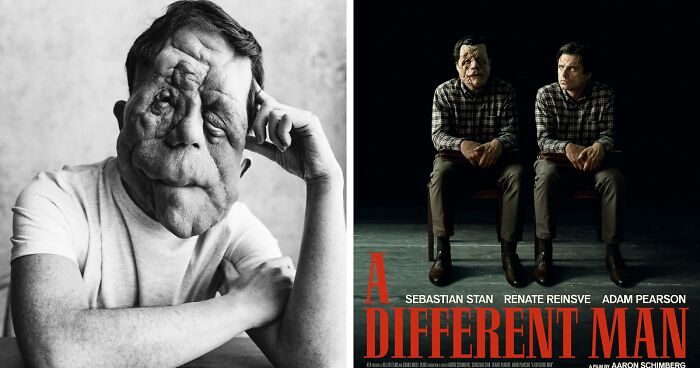
“My Disability Has Opened Doors”: Actor Adam Pearson Wants To Normalize Facial Disfigurement
British actor Adam Pearson is telling the stories about disability that he wants to see in Hollywood.
The 39-year-old, who lives with neurofibromatosis type 1 (NF1), stars in A Different Man, a dark comedy inspired by his confident personality and written and directed by Aaron Schimberg.
In thefilm, set to be released September 20, Adam plays Oswald, an actor with facial disfigurement who is cast to portray Edward (Sebastian Stan), an aspiring actor with similar disfigurement, in a stage production based on Edward’s life.
- Adam Pearson stars in the dark comedy A Different Man, aiming to destigmatize facial disfigurement.
- Adam lives with neurofibromatosis type 1 (NF1), a genetic disorder causing tumors that affects 1 in 3,000 people worldwide.
- The actor criticizes Hollywood for "lazy writing" about disabilities and advocates for more disabled voices in creative processes.
Adam Pearson hopes to destigmatize facial disfigurement with his new film, A Different Man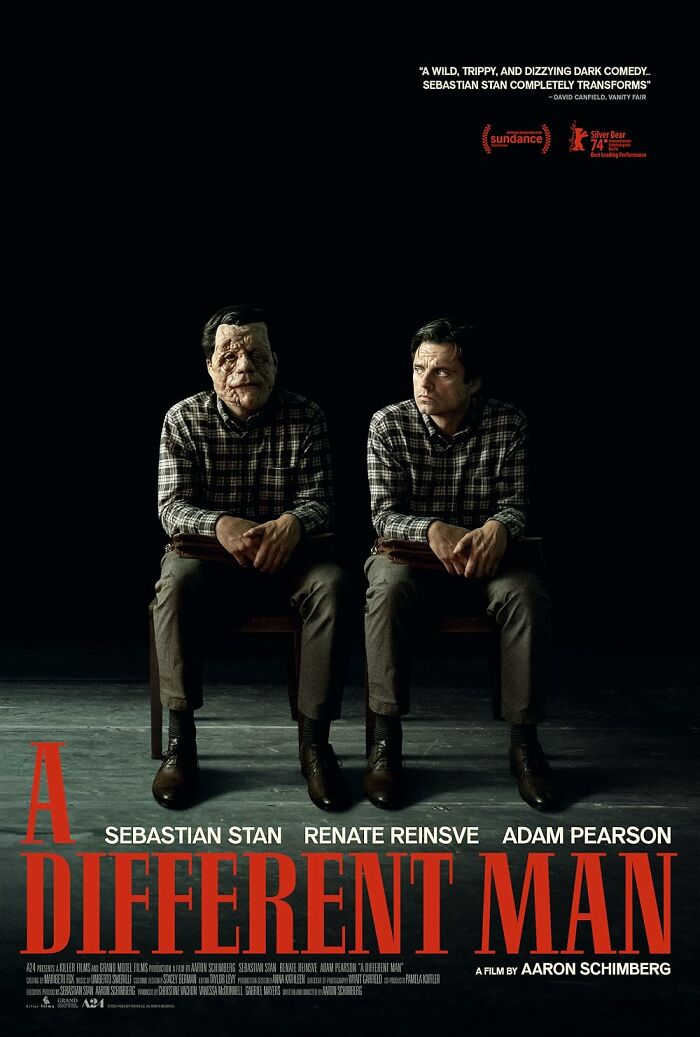
Image credits: IMDB
Adam previously worked alongside Scarlett Johansson in the 2014 thriller Under the Skin and Schimberg’s 2019 film Chained for Life.
“I’m liked, and luckily, people seem to get on board with what I do,” the London-born actor, who has jokingly referred to himself as “God’s favorite disabled guy,” toldPeople Magazine.
“I think if I’m not educating, I’m being reckless and irresponsible,” said the British actor, who lives with neurofibromatosis type 1
Image credits: Adam Pearson
Adam believes Hollywood creators produce “lazy writing” to tell stories about people with disabilities.
“I don’t think there are enough disabled voices feeding into the creative process,” he said.
“I get frustrated when people pretend they can’t find them. Granted, you don’t have to, but then don’t be surprised when what you make is garbage.”
Adam was five years old when he was diagnosed with neurofibromatosis type 1, an incurable genetic disorder that involves the entire nervous system (brain, spinal cord, and peripheral nerves) and can cause tumors.
View this post on Instagram
NF1 is a common form ofneurofibromatosis, accounting for 96% of cases. It affects an estimated 1 in 3,000 births worldwide annually, as per theCleveland Clinic.
It has “variable manifestations,” explains Dr. Jaishri Blakeley, director of the Johns Hopkins Comprehensive Neurofibromatosis Center.
The most common manifestations of the condition are cognitive challenges and tumors in deep nerves or in nerves that go to the skin.
Facial overgrowth is more rare, and those who live with it “face a lot of stigmatization by society,” Dr. Blakeley adds.
Image credits: Adam Pearson
By the time Adam was eight, the tumors had progressed, and he was bullied at school for his appearance, a situation that continued until high school.
“Anytime The Elephant Man or The Hunchback of Notre Dame was on TV, the next day I’d hear that nickname,” he recalled.
“Secondary school was particularly painful. I’d take a deep breath before walking through the gates and try to hang on.”
In the film, Adam plays Oswald, an actor with facial disfigurement who is cast to portray Edward (Sebastian Stan), an aspiring actor with a similar condition
Image credits: Berlinale – Berlin International Film Festival
The actor never pitied himself for having NF1. “You can get bogged down in, ‘It’s not fair. Why is life so cruel?’ It doesn’t solve anything.”
He still gets a lot of stares on the street—some are simply curious, while others are ill-intentioned.
“I think an honest conversation goes a long way,” said Adam.
“Curiosity should be answered with kindness. All people want is to know that you’re okay and that they’re going to be okay. After that, it’s plain sailing.”
Image credits: Adam Pearson
He continued: “If people want to talk, let’s talk. I know some in the disabled community say, ‘It’s not my job to educate you about disability.’ But we’re the experts.
“I think if I’m not educating, I’m being reckless and irresponsible.”
“We wanted to make something that changed how people think rather than what they think, and create conversation and debate,” Adam said
View this post on Instagram
His big screen appearances also serve an educational purpose, as they contribute to destigmatizing the condition.
“My disability has opened way more doors than it’s closed,” Adam said.
“If what I’m doing now means that younger Adam Pearsons don’t have to walk through hell in school or that someone who looks like me can walk into a pub, and it isn’t a big deal, then I’ve accomplished my goal.”
Last February, after the film’s premiere at the Berlin Film Festival, Sebastian Standefended his co-star from a reporter who used the word “beast” to describe people with facial disfigurement.
“I think that’s one of the things the film is saying — we have these preconceived ideas, and we’re not really educated on how to understand this experience in particular,” Sebastian responded.
I think it's an awesome story.......but I'll never understand the phrase "normalize" being used when the actual thing itself is either a vast, vast minority or an outright rarity to begin with. Just an odd thing to me, that everyone wants to "normalize things that are extremely uncommon, even in a massive population. Being understanding, sympathetic, empathetic, etc........fine, but always saying we should "normalize" everything makes the actual word or act itself meaningless in the context.
“Secondary school was particularly painful. I’d take a deep breath before walking through the gates and try to hang on.” He probably mean receiving a normal, fair treatment.
Load More Replies...Wow. What a marvelous attitude to life Adam has. We humans are all different and I think more disabled people being on the silver screen would give some of us an education. I remember the late great Marty Feldman being interviewed and he said someone asked why he didn't "fix his face". He said he thought he looked like a novelty and it was good for his career.
I’ve met this guy about 12 years ago at uni, he was modelling for a portrait. Really nice guy - very good sense of humour and amazing presence ! So happy for his success in roles and creating more awareness for disabilities.
I think it's an awesome story.......but I'll never understand the phrase "normalize" being used when the actual thing itself is either a vast, vast minority or an outright rarity to begin with. Just an odd thing to me, that everyone wants to "normalize things that are extremely uncommon, even in a massive population. Being understanding, sympathetic, empathetic, etc........fine, but always saying we should "normalize" everything makes the actual word or act itself meaningless in the context.
“Secondary school was particularly painful. I’d take a deep breath before walking through the gates and try to hang on.” He probably mean receiving a normal, fair treatment.
Load More Replies...Wow. What a marvelous attitude to life Adam has. We humans are all different and I think more disabled people being on the silver screen would give some of us an education. I remember the late great Marty Feldman being interviewed and he said someone asked why he didn't "fix his face". He said he thought he looked like a novelty and it was good for his career.
I’ve met this guy about 12 years ago at uni, he was modelling for a portrait. Really nice guy - very good sense of humour and amazing presence ! So happy for his success in roles and creating more awareness for disabilities.

 Dark Mode
Dark Mode 

 No fees, cancel anytime
No fees, cancel anytime 


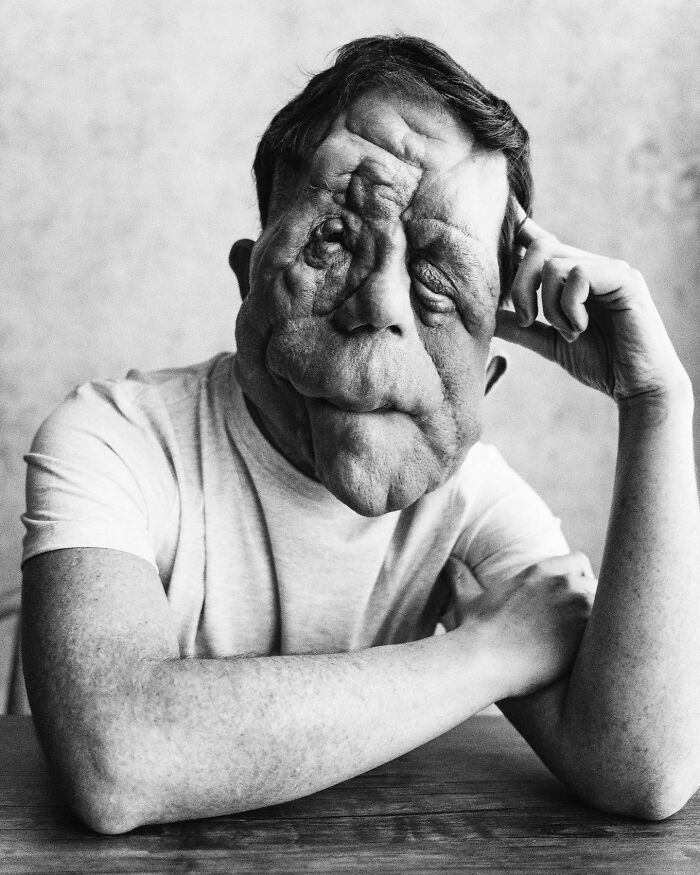

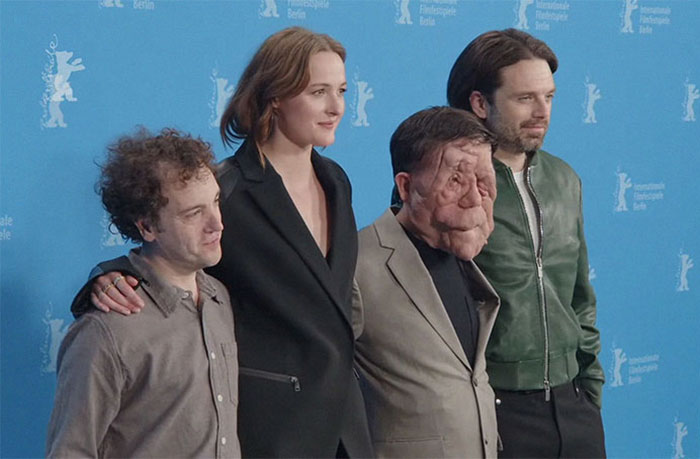
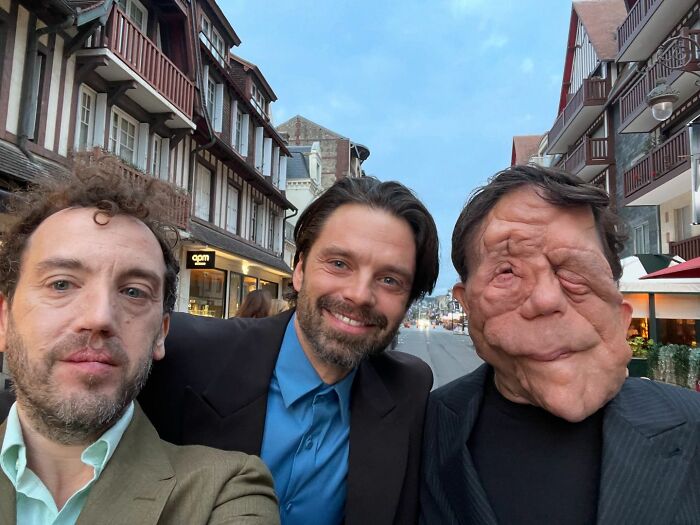































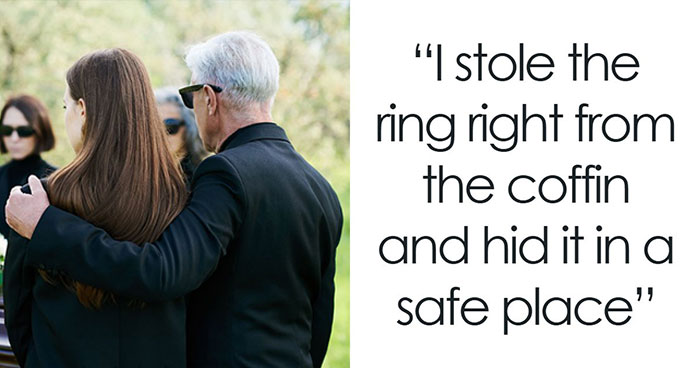











56
13